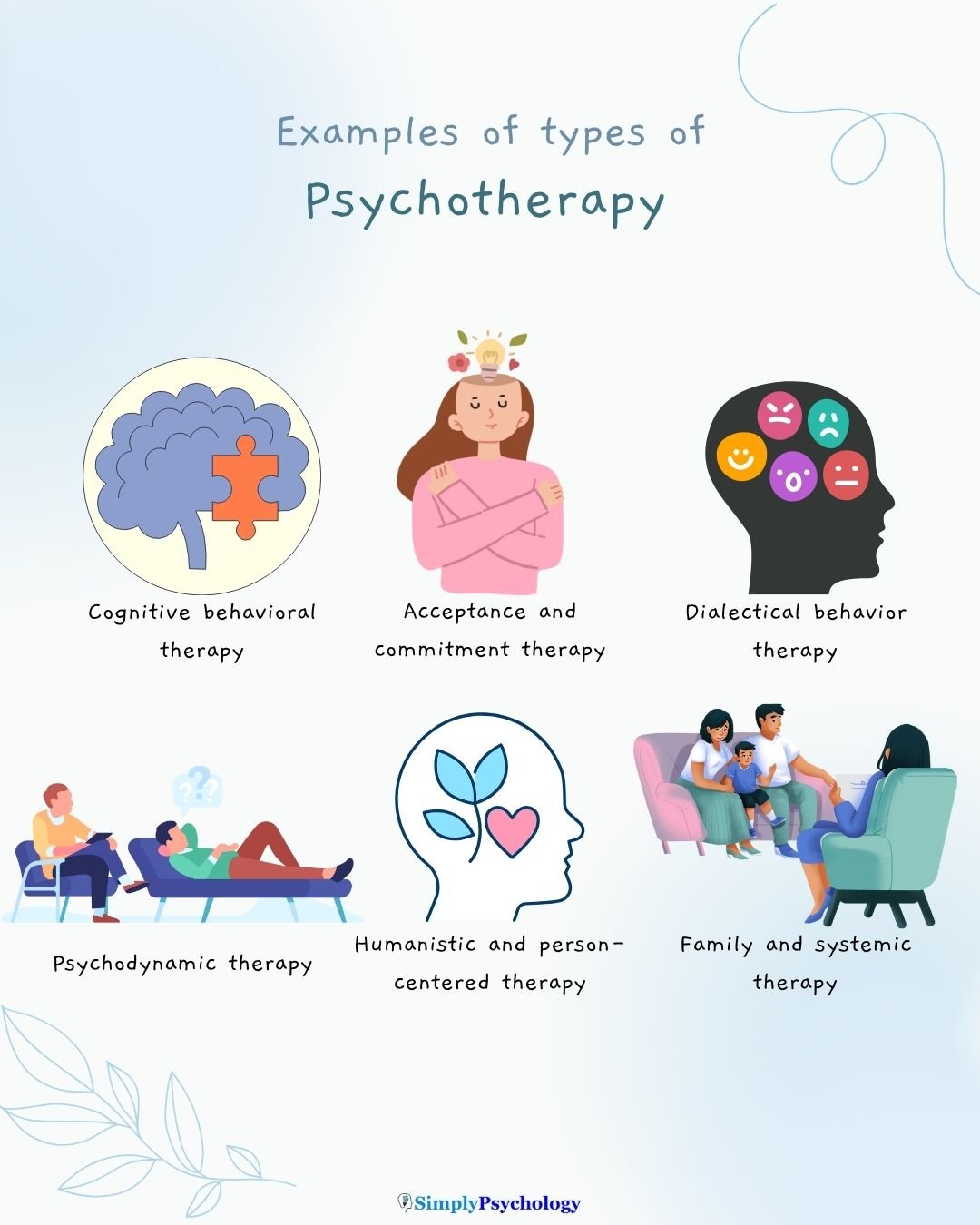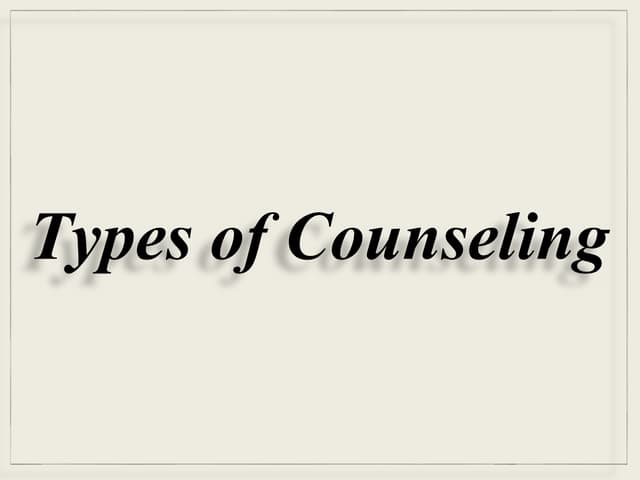When is relationship therapy online the Right Choice for You?
Wiki Article
Understanding the Reasons You May Requirement Counselling in Your Life Trip
Lots of people encounter obstacles that disrupt their psychological balance. Life changes, sorrow, and anxiousness can develop a feeling of bewilder. Counselling acts as a beneficial source in these minutes. It uses a risk-free room to navigate sensations and develop coping approaches. The factors for seeking counselling expand past immediate struggles. Recognizing these inspirations can bring about significant insights concerning oneself, motivating more exploration right into the intricacies of human experience.Navigating Life Transitions
As people experience various life modifications, such as changing occupations, relocating to a new city, or experiencing substantial connection changes, the procedure can frequently really feel frustrating. These adjustments require not just adjustments in everyday regimens but likewise psychological strength. The uncertainty and stress and anxiety connected with such changes might bring about sensations of anxiety, complication, or perhaps seclusion.Counselling can supply a helpful setting where individuals can explore their thoughts and feelings associated with these adjustments. An expert can help them recognize coping techniques and clarify their goals throughout this duration of adjustment. By cultivating self-awareness, coaching encourages individuals to navigate their brand-new scenarios with self-confidence.
Additionally, going over these challenges with an experienced specialist can facilitate individual growth and improve analytical abilities. Inevitably, reliable navigation through life modifications can cause new opportunities and a much deeper understanding of oneself, making the journey both transformative and enhancing.
Coping With Grief and Loss
Grief and loss frequently offer several of life's most difficult experiences, typically leaving people feeling dizzy and overloaded. The emotional turmoil can materialize in different means, including despair, temper, and also sense of guilt. Each individual's trip through despair is one-of-a-kind, affected by their relationship with what was shed and their coping systems.Counselling can give a supportive setting where individuals can refine their sensations and experiences. An experienced specialist can help them browse the complex feelings related to sorrow, supplying approaches to take care of the pain and discover definition. This support can motivate individuals to share their feelings openly, explore their memories, and progressively get used to life without their enjoyed one.
Eventually, looking for therapy during times of sorrow can promote strength, aiding individuals to recognize their loss while likewise finding a path towards recovery and acceptance.
Managing Anxiety and Stress
Just how can individuals successfully handle the stress and anxiety and stress and anxiety that usually go along with every day life obstacles? Recognizing the signs and symptoms is the primary step, as awareness can empower individuals to take control. Methods such as mindfulness and deep breathing workouts are useful, giving immediate relief by basing people in the existing minute. Normal physical activity likewise plays an essential role in relieving stress and anxiety, as it releases endorphins that boost state of mind.Additionally, developing an organized regimen can foster a feeling of security, aiding to minimize sensations of overwhelm. It is necessary to prioritize self-care, which includes healthy and balanced eating, appropriate rest, and taking part in hobbies that bring pleasure. Seeking specialist support through counseling can use customized methods for dealing with anxiety and tension. Inevitably, a mix of self-awareness, sensible strategies, and specialist advice can lead to efficient administration of anxiousness and tension, permitting individuals to browse their life journey with higher convenience.

Improving Relationships and Interaction
What techniques can people use to enhance their relationships and communication abilities? Reliable communication starts with active listening, where people totally engage with the speaker, showing compassion and understanding. This promotes an environment of trust and visibility. In addition, practicing clear and assertive expression of thoughts and feelings can help avoid misconceptions.Reserving devoted time for meaningful conversations can enhance bonds, permitting people to connect on a deeper level. Non-verbal signs, such as preserving eye contact and using suitable body movement, further enhance interaction.
Solving conflicts with an emphasis on collaboration rather than battle promotes healthier communications. Individuals can also gain from looking for comments from others, allowing them to recognize locations for enhancement. Ultimately, participating in self-reflection and being open to individual growth can bring about more meeting partnerships and enhanced interaction skills, leading the way for stronger connections in both personal and specialist setups.
Conquering Injury and Past Experiences

Why do some people locate it challenging to relocate previous trauma and previous experiences? For several, the emotional and psychological scars left by distressing events can create barriers to recovery. These experiences might bring about sensations of anxiousness, depression, or seclusion, usually manifesting in unhelpful coping systems. The mind has a tendency to replay distressing memories, making it challenging for individuals to involve completely in their existing lives.
Counselling can offer a safe area for people to face these previous experiences, permitting them to refine emotions and acquire perspective (couples counselling). With therapeutic techniques, people can learn to reframe their stories, fostering strength. The journey of recovery usually involves understanding the impact of injury on one's life and identifying that the past does not specify the future. By seeking support, people can begin to rebuild their lives, welcoming a path toward psychological liberty and individual growth
Enhancing Self-Esteem and Self-confidence
Enhancing self-worth and self-confidence is essential for individual growth and wellness. People usually encounter challenges such as adverse self-talk, impractical expectations, and an absence of durability. Attending to these problems can result in even more positive self-perceptions and higher accomplishments.Overcoming Unfavorable Self-Talk
Unfavorable self-talk can erode an individual's self-worth and self-confidence, producing a cycle of self-doubt and restricting ideas. This destructive interior discussion commonly stems from past experiences, social pressures, or unrealistic standards. Recognizing these negative patterns is the initial action toward change. People can profit from reframing their ideas, replacing criticism with useful feedback, and focusing on staminas rather than weak points. Participating in favorable affirmations and bordering oneself with helpful people can also promote a healthier self-image. Therapy offers tools and methods to challenge these hazardous stories, assisting people grow resilience. By resolving negative self-talk, people can boost their self-esteem and self-confidence, leading the method for individual development and a more favorable expectation on life.Establishing Practical Objectives
While pursuing personal development, individuals frequently discover that setting sensible goals works as an essential foundation for boosting self-esteem and confidence. Achievable purposes allow individuals to experience small success, reinforcing their idea in their abilities. When objectives are specific and attainable, they develop a clear course for progression, preventing feelings of overwhelm. This clarity fosters a feeling of control and success, essential components in building self-worth. In addition, satisfying these objectives, no matter how minor, urges individuals to push their borders and go after additional difficulties. As they identify their success, a favorable responses loop develops, improving their general self-image. The practice of setting reasonable objectives plays a critical function in supporting confidence throughout one's individual trip.Building Resilience Skills
Building durability skills is an essential element of individual advancement that matches the practice of setting practical objectives. These abilities cultivate a person's capability to adapt and prosper regardless of obstacles. Enhanced self-esteem and self-confidence are crucial parts of durability; they empower people to face adversity with a favorable way of read more thinking. Involving in tasks that advertise self-reflection, such as journaling or mindfulness, can significantly boost one's self-awareness and self-regard. In addition, looking for assistance from experts, like counselors, can supply guidance in getting rid of unfavorable thought patterns. By growing resilience, people learn to navigate setbacks effectively, transforming barriers into opportunities for growth. Ultimately, developing resilience not only fortifies one's emotional health and wellness however likewise reinforces partnerships and overall life fulfillment.Seeking Individual Development and Self-Discovery

Accepting Adjustment and Growth
Adjustment and development often emerge as vital components of a person's journey in the direction of self-discovery, as they challenge one to face their beliefs and adapt to new conditions. Embracing these elements can bring about extensive understandings and individual advancement. Individuals might locate that their current situations no more line up with their aspirations, triggering a desire for change. This pursuit often demands stepping outside of convenience areas, cultivating resilience and adaptability. Via therapy, people can discover their feelings bordering modification, acquiring support in guiding shifts. By recognizing and welcoming the certainty of adjustment, they can access brand-new potentials and paths for development. Eventually, this journey urges a much deeper understanding of oneself and the globe, leading the way for a much more satisfying life experience.Discovering Individual Worths
As individuals browse their life journeys, exploring individual worths comes to be a crucial step in looking for personal development and self-discovery. Individual values function as assisting principles that form choices, habits, and connections. By identifying what genuinely matters to them, people can gain clarity on their objectives and ambitions. This exploration frequently involves introspection, representation, and in some cases even hard discussions with oneself or others. Taking part in this process can reveal inconsistencies between one's current life and their authentic self, prompting required changes. Counselling can facilitate this expedition, providing a risk-free room for individuals to verbalize their worths and confront difficulties. Eventually, comprehending individual worths boosts self-awareness, resulting in more meeting life selections straightened with one's true identification.
Frequently Asked Inquiries
Exactly how Do I Know if I Required Coaching?
Determining the demand for counselling commonly involves identifying persistent emotional distress, difficulty managing day-to-day live, or sensation overwhelmed. Indicators may include changes in mood, relationships, rest, or a sense of seclusion. Seeking advice can be beneficial.What Kinds of Therapy Are Readily available?
Different sorts of counselling consist of individual, couples, family members, and group therapy. low cost therapy. Specialized options like cognitive-behavioral treatment, art therapy, and drug abuse counselling deal with specific requirements, permitting individuals to seek support tailored to their conditionsIs Coaching Confidential?
Coaching is usually confidential, making sure that clients really feel safe to share personal experiences. However, exemptions exist, such as risks of injury or legal responsibilities, where a counsellor may need to disclose particular info for security.How Much Time Does Therapy Typically Last?
Counselling period differs extensively, usually lasting from a few sessions to several months. Variables affecting this consist of the certain concerns attended to, the healing approach, and individual development, shaping a distinct timeline for each and every client's trip.Can I Attend Counselling Online or Remotely?
Many individuals ask about the possibility of attending therapy online or remotely. The response is affirmative; various therapists use digital sessions, making psychological wellness assistance much more accessible no matter of geographical location or personal conditions.Report this wiki page